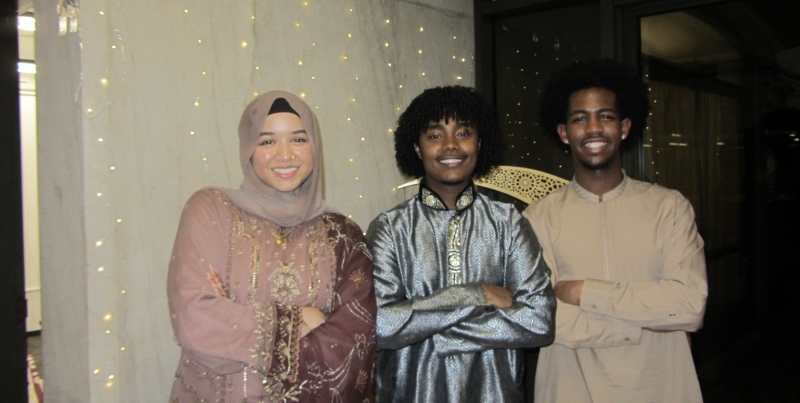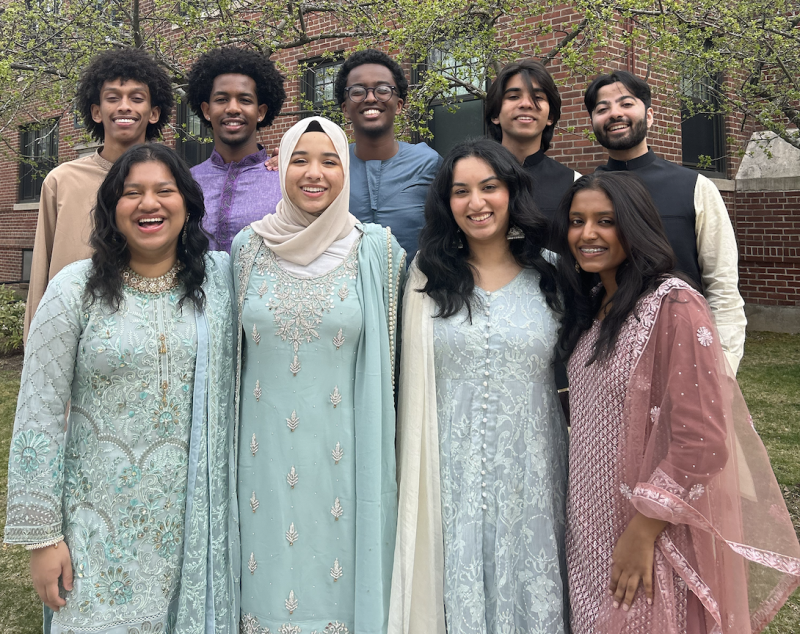Eid-al-Fitr is one of the two major holidays for Muslims; it marks the end of Ramadan, a time when Muslims fast, donate to charity, worship, and attend communal gatherings.
As someone who is very grateful to live in Massachusetts, I celebrate this holiday with both my family and friends.

The night before Eid, the Harvard Pakistani Student Association hosts their annual Chand Raat event where friends gather around the night before Eid-al-Fitr, eat food, enjoy performances including Qawali, get henna done, and more.
I typically go home after Chand Raat and I wake up early in the morning the following day for Eid Prayer with my family. After prayer, I get chai with my sister from one of my favorite cafes in Cambridge, Jaho (they have kulfi lattes!). Then it is time to prepare and serve all the dishes my mom has been preparing for the past few days for our guests.

Every year for lunch I invite my friends from Harvard College over to celebrate Eid with my family because spending time together with loved ones is an important part of Eid. My mom makes lots of Bengali dishes including biryani, goro mangsho, chicken korma, salmon kabobs, and more. When my friends come they eat the main meal, desserts such as sandesh and mishti, and end the meal with cha. Afterward, we pray Dhuhr outside together and take pictures.

After my friends leave, I visit my family friends, eat some of their food, and catch up with them, then I head back to campus for the Eid Banquet hosted by the Harvard Islamic Society. This year’s banquet was on a boat, and they served delicious food from Ali’s’ Uyghur Kitchen. They recognized the seniors, we prayed the Maghrib prayer, and we were given little bottles of zam zam water.
Every year, Eid at Harvard is very eventful. For those who stay on campus, the Muslim Chaplains host Eid prayer and brunch in the morning. One thing for sure is that Eid-al-Fitr is one thing to look forward to on campus.
Comments
Post a Comment